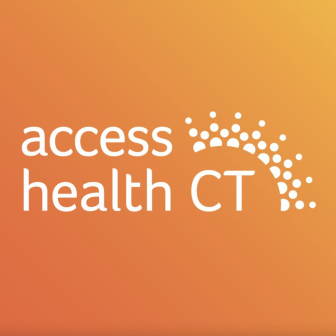Conversation in the Digital Age: Panel of Experts Will Discuss How We’re Changing
/The topic of the evening is an exploration of conversation in the digital age, as two Hartford institutions come together to bring some perspective to how we communicate in the age of technology, and how we don’t.
On Wednesday, May 4, The Connecticut Forum in partnership with the Mark Twain House & Museum will present DISCONNECT: Conversation in the Digital Age. The event is described as an (old-fashioned) conversation with three nationally-recognized digital experts to discuss “how social media and our ubiquitous devices have impacted the art of authentic conversation.” They pose the question: if conversation is how we truly connect to others, what happens when face-to-face communication decreases?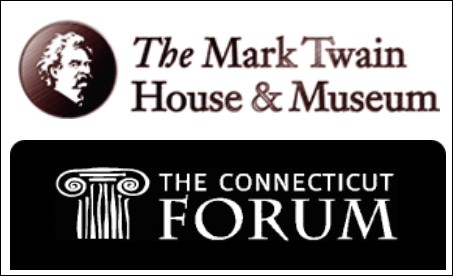
The panel will feature Dr. David Greenfield from the Center for Internet & Technology Addiction, Slow Tech Movement founder Janell Burley Hofmann, and tech ethicist David Ryan Polgar. Jamie Daniel, director of programming at The Connecticut Forum, will moderate the conversation.
Polgar says that opportunities for fluid conversations have diminished, to our detriment. “We have adapted technology faster than we can adjust our norms or our etiquette. Do we ever have a prolonged conversation anymore? There’s a difference between communication and conversation,” he suggests.
“We’re constantly packaging ourselves – exercising brand management in our conversations,” he observes. “We’re so plugged in, we don’t do eye-to-eye communicating much anymore – there’s a need to increase facetime in our communication.”
Polgar is a frequent speaker and respected tech commentator/writer, and has been featured in The Boston Globe, Financial Times, BBC, SiriusXM, Sydney Morning Herald, VentureBeat, US News & World Report, TEDx, and Forbes, among other publications. He is also co-founder of the Digital Citizenship Summit, a global network of summits focused on safe, savvy, and ethical use of social media and technology. With a background as an attorney and educator, he examines tech use from an ethical, legal, and emotional perspective, providing a unique look into emerging trends and business insight.
“We’re thrilled to collaborate with the Twain House on this timely event,” said Connecticut Forum Executive Director Doris Sugarman. “We welcome opportunities like this to facilitate and encourage dialogue about compelling topics that impact our communities and our lives.”
Individuals planning on attending can send in a question in advance of May 4, via a link that provides a form for questions to be directed at a specific panelist, or the entire panel.
Janell Burley Hofman is the author of the book, iRules: What Every Tech-Healthy Family Needs to Know About Selfies, Sexting, Gaming and Growing Up. She is also a speaker and consultant on topics like technology, media, health, relationships and personal growth. She will be signing copies of her book after the program.
Dr. David Greenfield is the founder of The Center for Internet and Technology Addiction and an Assistant Clinical Professor of Psychiatry at the University of Connecticut School of Medicine. He is recognized as one of the world’s leading voices on Internet, computer, and digital media behavior, and a pioneer concerning compulsive and addictive use. He is the author of the Virtual Addiction, which rang an early warning bell with tech overuse when it came out in 1999. He lectures to public and medical/psychiatric groups throughout the world, and has appeared numerous times on national media and publications.
“I am looking forward to hearing from this panel of experts on questions that we consider every day,” said Jamie Daniel, Director of Programming at The Connecticut Forum, who will be moderating the discussion. “How is technology changing the way we make friends, fall in love, and parent our kids? How is our online discourse impacting the way we engage in politics? Connect with one another? Shape our communities? And how is social media changing our relationships - and our brains? This amazing panel will help us consider all of this, and more.”
-----
The Connecticut Forum is a (c)(3) nonprofit organization serving Connecticut and beyond with live, unscripted conversations among renowned experts and celebrities, and community outreach programs including the Connecticut YOUTH Forum. The Mark Twain House & Museum has restored the author's home, where the author and his family lived from 1874 to 1891. In addition to providing tours of the National Historic Landmark, the institution offers activities and educational programs that illuminate Twain's literary legacy and provide information about his life and times.
Tickets for DISCONNECT are $10. ($5 for Mark Twain House & Museum members and Connecticut Forum subscribers) The program on Wednesday, May 4 begins at 7 PM. Photo: (l to r) David Greenfield, Jannell Hofmann, David Ryan Polgar.


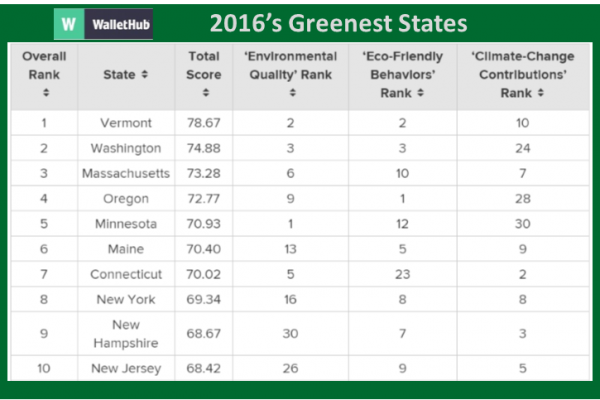
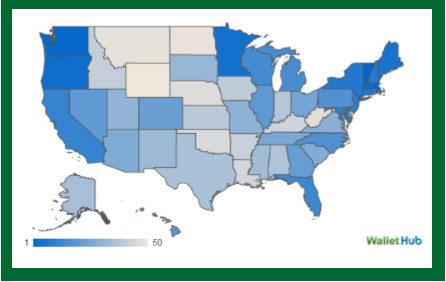
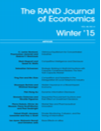 impact of a seller’s race in a field experiment involving baseball card auctions on eBay. The results, according to the researchers, left little doubt.
impact of a seller’s race in a field experiment involving baseball card auctions on eBay. The results, according to the researchers, left little doubt.
 e first total was larger.”
e first total was larger.” e Gordon Bradford Tweedy Professor at Yale Law School and the Director of the Law and Economics Program at the National Bureau of Economic Research (NBER) with headquarters in Cambridge, Massachusetts.
e Gordon Bradford Tweedy Professor at Yale Law School and the Director of the Law and Economics Program at the National Bureau of Economic Research (NBER) with headquarters in Cambridge, Massachusetts. 

 Stamford has a public park named in his honor, recalling that Robinson represented tolerance, educational opportunity, and the confidence that inspires personal achievement and success. A life-size bronze statue of Jackie Robinson with an engraved base bearing the words “COURAGE,” “CONFIDENCE,” AND “PERSEVERANCE” stands in the park located on West Main Street, the gateway to downtown Stamford.
Stamford has a public park named in his honor, recalling that Robinson represented tolerance, educational opportunity, and the confidence that inspires personal achievement and success. A life-size bronze statue of Jackie Robinson with an engraved base bearing the words “COURAGE,” “CONFIDENCE,” AND “PERSEVERANCE” stands in the park located on West Main Street, the gateway to downtown Stamford. “It brought back very personal memories of my father talking about his trip to Cuba in 1947, when the Brooklyn Dodgers trained in Havana. At the time, dad was a member of the Dodgers' farm team, the Montreal Royals. Branch Rickey arranged for him to fly to Cuba for an exhibition game, just a couple of months before he broke down baseball's color barrier in the United States. To me, this connection to my father almost brought me to tears. I was watching a baseball game in the same stadium nearly 70 years later.”
“It brought back very personal memories of my father talking about his trip to Cuba in 1947, when the Brooklyn Dodgers trained in Havana. At the time, dad was a member of the Dodgers' farm team, the Montreal Royals. Branch Rickey arranged for him to fly to Cuba for an exhibition game, just a couple of months before he broke down baseball's color barrier in the United States. To me, this connection to my father almost brought me to tears. I was watching a baseball game in the same stadium nearly 70 years later.”

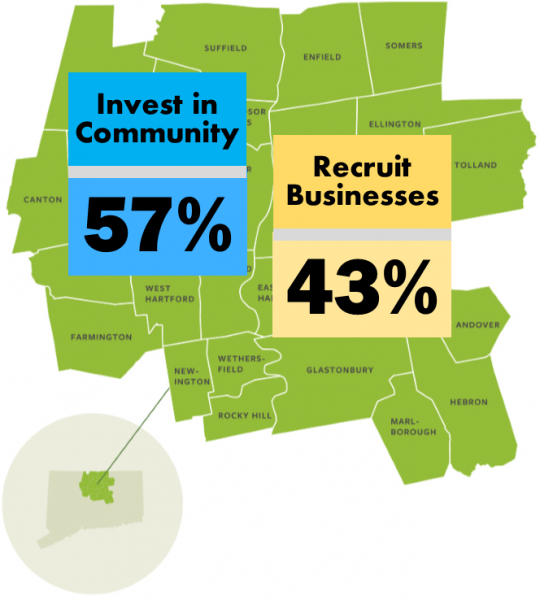 The data from the survey reflect a difference of opinion among older residents of the region. Individuals over age 46 took the opposite view from younger residents, with a majority expressing a preference for spending skewed toward recruiting companies. The reversal was dramatic, with two-thirds of those age 36-45 preferring investing in communities, by a margin of 67%-33%, and individuals age 46-55 expressing a preference for resources to be aimed at recruiting companies, with two-thirds holding the opposite view, 63%-38%.
The data from the survey reflect a difference of opinion among older residents of the region. Individuals over age 46 took the opposite view from younger residents, with a majority expressing a preference for spending skewed toward recruiting companies. The reversal was dramatic, with two-thirds of those age 36-45 preferring investing in communities, by a margin of 67%-33%, and individuals age 46-55 expressing a preference for resources to be aimed at recruiting companies, with two-thirds holding the opposite view, 63%-38%.

 Chinese made up 35 percent of the 92,000 foreign secondary school students in the United States in 2015, according to the US Department of Homeland Security, by far the largest group studying here, the Boston Globe
Chinese made up 35 percent of the 92,000 foreign secondary school students in the United States in 2015, according to the US Department of Homeland Security, by far the largest group studying here, the Boston Globe 




 In Connecticut, a person is guilty of trafficking in persons when such person compels or induces another person to engage in sexual contact or provide labor or services by means of force, threat of force, fraud or coercion. Anyone under the age of 18 engaged in commercial sexual exploitation is deemed a victim of domestic minor sex trafficking irrespective of the use of force, threat of force, fraud or coercion.
In Connecticut, a person is guilty of trafficking in persons when such person compels or induces another person to engage in sexual contact or provide labor or services by means of force, threat of force, fraud or coercion. Anyone under the age of 18 engaged in commercial sexual exploitation is deemed a victim of domestic minor sex trafficking irrespective of the use of force, threat of force, fraud or coercion. The need for stronger action is underscored by recent statistics. In Connecticut, one of every three kindergartners is overweight or obese, as is one of every three low-income children. Children who are overweight or obese are more likely, according to the policy brief, to have:
The need for stronger action is underscored by recent statistics. In Connecticut, one of every three kindergartners is overweight or obese, as is one of every three low-income children. Children who are overweight or obese are more likely, according to the policy brief, to have: A number of the proposals have been successfully implemented in other jurisdictions, including states and cities. Marlene Schwartz, Director of UConn's Rudd Center for Food Policy and Obesity, noted that Connecticut has long been a leader in providing nutritional lunches in schools, and said that now the state’s attention needs to move to the earlier years of childhood. “The field has realized that we need to start even earlier,” she said. Rudd also indicated that determining "policy changes that might help reduce the disparities" in Connecticut, which are apparent in race, ethnicity and socioeconomic data, is also essential.
A number of the proposals have been successfully implemented in other jurisdictions, including states and cities. Marlene Schwartz, Director of UConn's Rudd Center for Food Policy and Obesity, noted that Connecticut has long been a leader in providing nutritional lunches in schools, and said that now the state’s attention needs to move to the earlier years of childhood. “The field has realized that we need to start even earlier,” she said. Rudd also indicated that determining "policy changes that might help reduce the disparities" in Connecticut, which are apparent in race, ethnicity and socioeconomic data, is also essential.
 The recommendations, described as “affordable, achievable, common sense measures,” were prepared for CHDI as part of a grant to the UConn Rudd Center for Food Policy and Obesity, funded by the Children’s Fund of Connecticut. The author was public health policy consultant Roberta R. Friedman, ScM.
The recommendations, described as “affordable, achievable, common sense measures,” were prepared for CHDI as part of a grant to the UConn Rudd Center for Food Policy and Obesity, funded by the Children’s Fund of Connecticut. The author was public health policy consultant Roberta R. Friedman, ScM. IMPACT “Preventing Childhood Obesity: Maternal-Child Life Course Approach” in 2014. The report reviewed scientific research on the causes of obesity and explored implications for prevention and early intervention. In 2015, the Children’s Fund of Connecticut funded four obesity prevention projects in Connecticut that addressed health messaging, data development, policy development and baby-friendly hospitals.
IMPACT “Preventing Childhood Obesity: Maternal-Child Life Course Approach” in 2014. The report reviewed scientific research on the causes of obesity and explored implications for prevention and early intervention. In 2015, the Children’s Fund of Connecticut funded four obesity prevention projects in Connecticut that addressed health messaging, data development, policy development and baby-friendly hospitals.
















